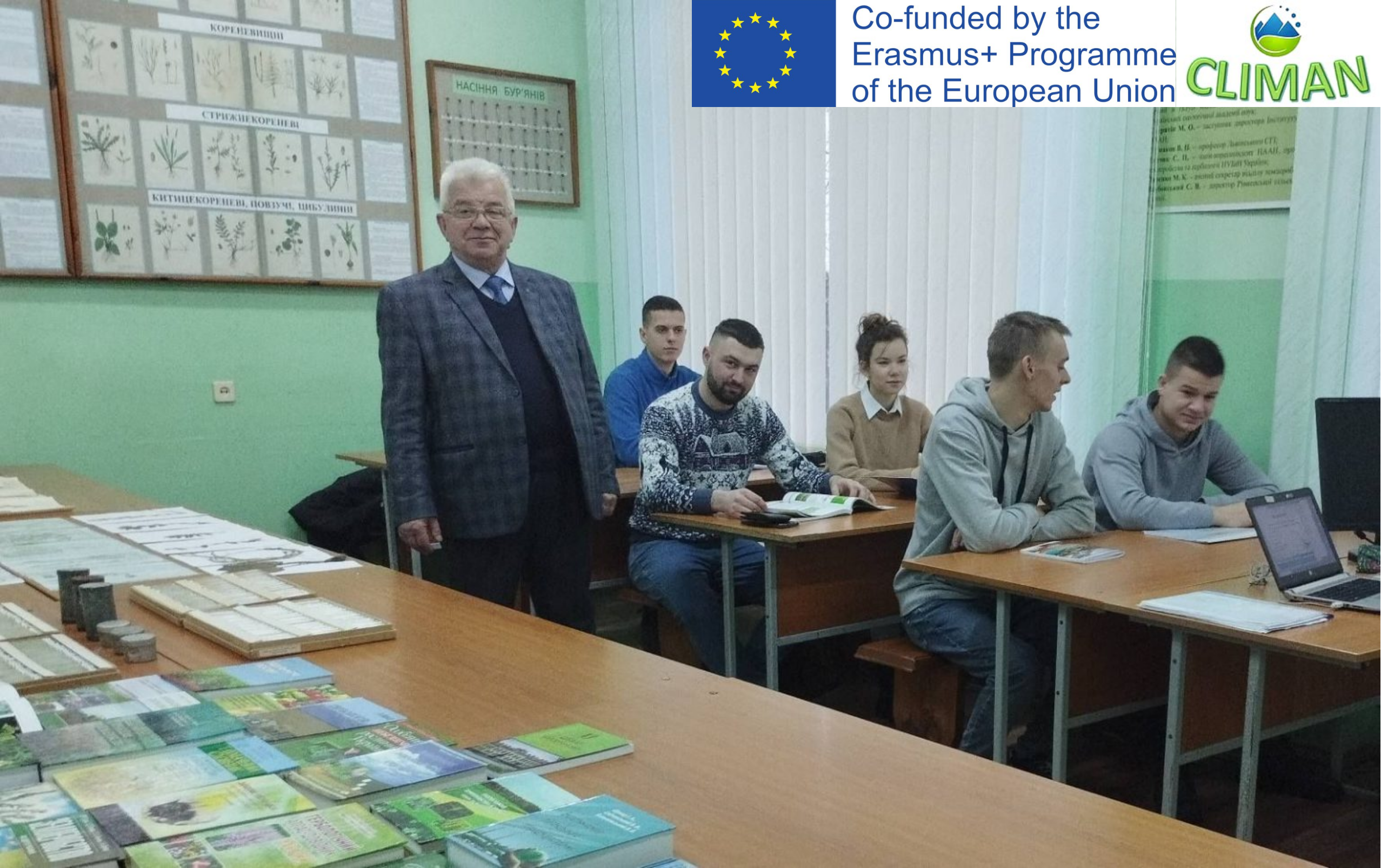Within the framework of the international project 619119-EPP-1-2020-1-NL-EPPKA2-CBHE-JP “Synergy of educational, scientific, managerial and industrial components for climate management and climate change prevention” / CLIMAN (Erasmus+ Program, Neighborhood, Development and International Cooperation Instrument, Action KA2: Higher Education Capacity Building), the training module “Climate Management” has been launched at the Department of Agribiotechnology of the Western Ukrainian National University.
The goal of the project is to help universities in Georgia and Ukraine become centers for the development of climate management research to accelerate integration into the global climate market and implement global climate regulation requirements by implementing best European practices in climate change mitigation, adaptation, and mitigation.
The Climate Management training module includes the following training blocks:
– Strategic climate management in agriculture;
– environmental safety in agriculture;
– adaptive farming technologies in the face of climate change;
– energy plant resources.
As part of the Adaptive Farming Technologies in the Face of Climate Change course, led by Professor Ivan Shuvar, students have the opportunity to acquire knowledge of the zonal characteristics of natural ecosystems through the introduction of organic farming methods adapted to specific soil and climatic conditions, taking into account the peculiarities of global climate change. The training block is aimed at acquiring skills and abilities to effectively implement advanced resource-saving adaptive technologies for growing crops in scientifically sound agrocenoses, taking into account climate change.
The project is co-financed by the European Union. However, the expressed views and opinions belong solely to the authors and do not necessarily reflect the views of the European Union or the European Education and Culture Executive Agency (EACEA). Neither the European Union nor the grantor can be held responsible for them.

